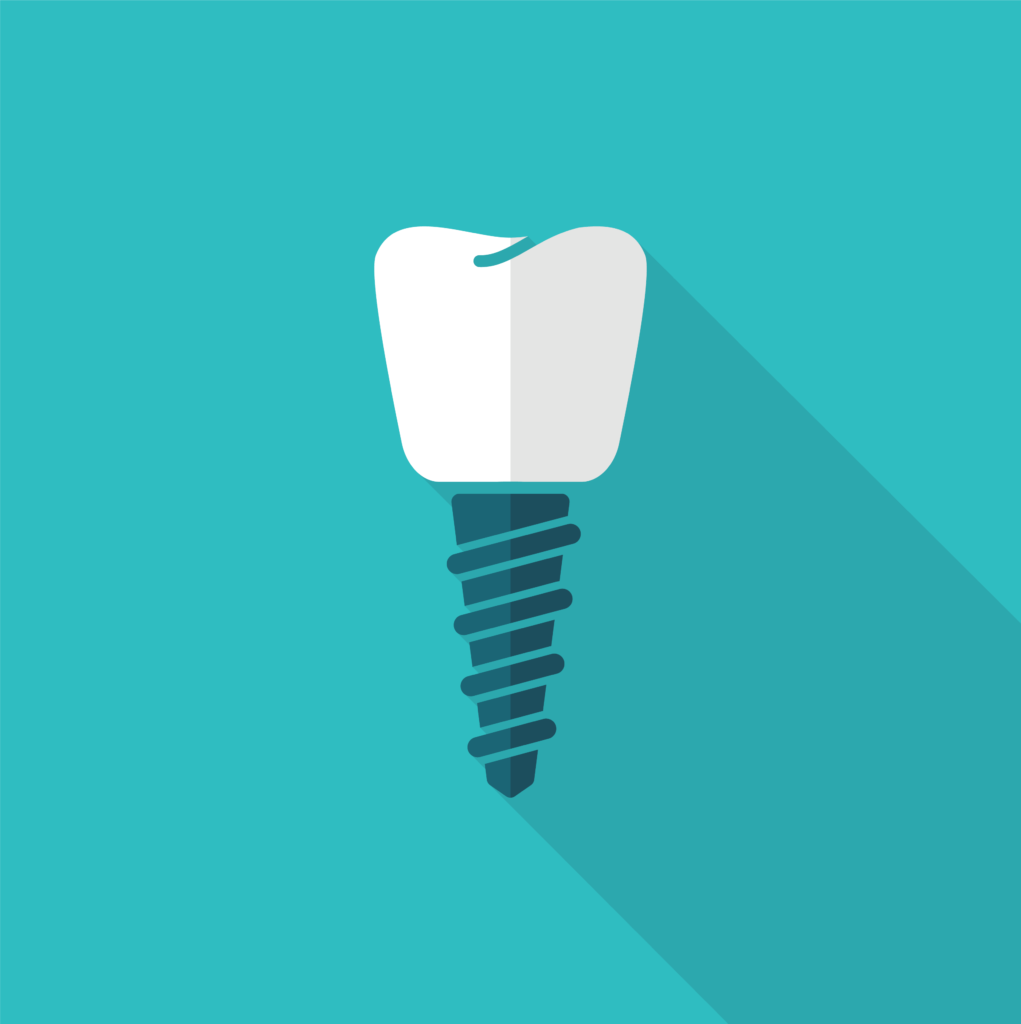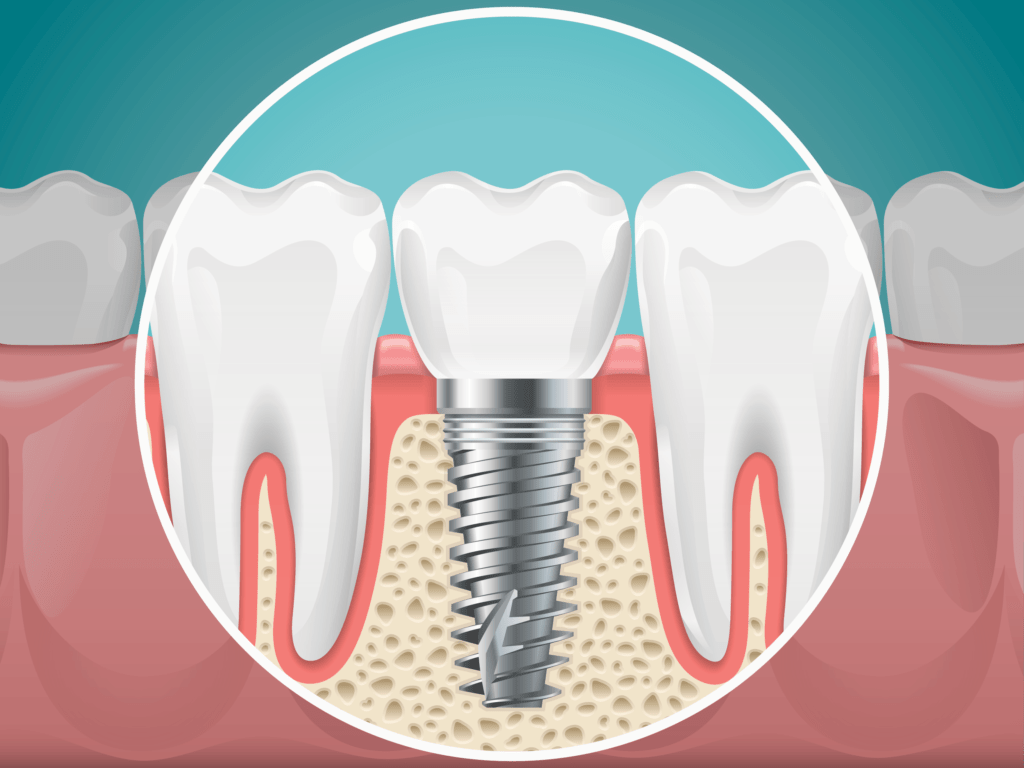
If you’re considering replacing a missing tooth or a set of missing teeth with dental implants, you’ve probably asked yourself if they’re worth the risk. Dental implants are just like any other surgery: there’s never an 100% success rate. So, what are dental implant failure rates?
We think long-term oral health decisions require time and thought. Unfortunately, there isn’t a cookie cutter answer for every dental problem. Apart from doing research online, the next best step is to talk to a professional. Make a list of questions and find out what risks you’re willing to take to achieve the smile or quality of life that you want.
At Dr. Stone’s practice, we often recommend dental implants, but it always depends on the patient. Some patients don’t have adequate bone density in the jaw without bone grafts while other patients may just not be ready for a procedure that requires general anesthesia. But even patients who appear able to support dental implants may have trouble with their dental implants. Here’s what you should know before you decide on dental implants.
Average dental implant failure rates
Findings from multiple studies put the success rate for dental implants between 90% and 98%. What this means is that the failure rate is between 2% and 10%. How do you make sure that you’re not one of the 1 in 10 people (worst case scenario) whose dental implants fail?
There are many reasons for dental implant failure and knowing the major causes of failure may help you decide if implants are right for you.
An often-cited clinical study on dental implant failure by Tabanella G, Nowzari H, and Slots J. found, “The failure of the host tissue to establish or maintain osseointegration around dental implants is due to either occlusal or parafunctional forces, premature loading, ill-directed stress, or microbial infection. The long-term failure rate of dental implants is generally 5-10%.”
Since this is currently in academic, medical language, let’s break these reasons down.
Occlusal or parafunctional forces
Occlusion mostly focuses on the relationship that your top teeth have with your bottom teeth. And parafunctional activity is activity that a body part wasn’t built to perform. Parafunctional activities include fingernail chewing, pencil chewing, and mouth breathing, and tooth grinding is a parafunctional activity that includes occlusal forces.
If you have any of these habits or have been diagnosed with bruxism (teeth grinding), your chances for dental implant failure rise. You need to be honest with your dentist about what habits you have. And this includes smoking and drinking.
It will likely be necessary for you to fix those bad habits before your dental implants are placed as they’ll heavily influence your chances of success.
Premature loading

Premature loading refers to placing the crown on the implant post before 2 months have passed. Osseointegration is the process where your bone forms around the new dental implant. This process can take up to 2 months, and if you rush it, you have a much higher chance of dental implant failure.
This is one of the major reasons Dr. Stone suggests patients go the traditional route for dental implants instead of getting one day dental implants. Though one day dental implants (or teeth in a day) work for some patients, in general, the traditional method is the tried and true way to place an implant as it allows the necessary time for Osseointegration.
Ill directed stress
Ill directed stress is just another way of saying that how much pressure you put on a dental implant affects how successful it will be. The amount of force that a tooth has to put up with on a daily basis will be influenced by its location in the mouth as well as the strength of the teeth nearby.
In other words, the physics of chewing and biting play a large factor in the success of your dental implants. Some teeth—by the nature of where they’re located in the mouth—carry more of the burden. Depending on where a tooth is located in the mouth, it will also have pressure coming in from different angles. This can be hard for any tooth, especially for a brand-new dental implant.
Microbial infection
This one is pretty clear. With any surgery, there’s always a chance of infection. Everyone reacts to surgery differently and everyone’s immune system is different.
All that being said, going to a clean office that follows regulations for cleanliness and sanitation are going to make your chances for infection much lower. You need to follow your gut feeling when you walk into any office. And being honest with you, choosing to have your dental implants placed out of country can include greater risk than you thought as their laws aren’t always the same regarding sanitation.
What all this means about dental implant failure
I don’t know if you noticed but every single one of these factors can be dealt with by going to an experienced and licensed prosthodontist. If you’re honest with your prosthodontist about the factors that worry you and they perform tests to see how much stress is on the tooth under question, your chances for success go way up.
We can’t make any guarantees about how your dental implants will do, but we can tell you that experience and honesty are going to go a long way.
The numbers for dental implant failures are also inflated by people who travel overseas and get one day dental implants. Not only are they prematurely loading the implant, but they’re probably not doing extensive tests for ill directed stress or occlusal forces. And this is all while performing the surgery often in less than ideal sanitary conditions.
It’s actually surprising that the failure rate is so low when you include all the times that people have gotten dental implants when any licensed dentist should have told them that they weren’t the right candidate for the procedure.
Talk to us

Dr. Stone has been placing dental implants since 1991, so he’s coming up on 30 years of experience with dental implants. He’d love to sit down and talk with you about whether dental implants are right for you. We think it’s important to have the best information before making a decision that can affect your quality of life for decades. So, we never charge new and prospective patients for an initial consultation. Schedule your free appointment today!

